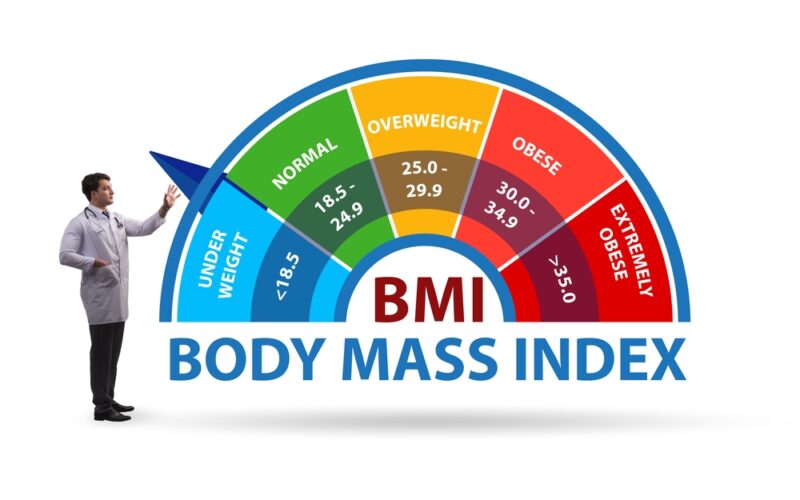Understanding your Body Mass Index (BMI) is crucial when exploring weight loss medications. This key metric helps determine not only your eligibility for various treatments but also which options might work best for you. Let’s explore how BMI for weight loss drugs works and what it means for your weight loss journey.
Key takeaways
- BMI is a crucial factor in qualifying for weight loss medications
- Different medications have specific BMI requirements
- BMI calculations can be done easily at home
- Your BMI affects which treatments you might be eligible for
- Professional guidance is essential for accurate interpretation
What is BMI, and how does it affect weight loss decisions?
When considering weight loss and BMI, it’s important to understand that BMI serves as more than just a number. It’s a screening tool healthcare providers use to assess whether someone might benefit from weight loss medications. Your BMI represents the relationship between your height and weight, providing insight into potential health risks and treatment options.
The connection between BMI and weight loss is significant because it helps healthcare providers determine the most appropriate interventions. While BMI isn’t the only factor considered, it’s often the starting point for developing an effective weight loss strategy.
Why BMI matters when choosing weight loss drugs
To lose weight BMI considerations are crucial because different medications have specific BMI thresholds for prescription. For example, many GLP-1 agonists require a BMI of 30 or higher, or 27+ with weight-related health conditions. Understanding where you fall on the BMI scale can help set realistic expectations about which treatments might be available to you.
How to calculate BMI accurately
To calculate BMI, you can use a simple formula: weight in kilograms divided by height in meters squared. For those more comfortable with pounds and inches, multiply your weight in pounds by 703, then divide by your height in inches squared.
Many people prefer using an online BMI calculator women and men can access easily. These tools provide instant results and often include additional information about weight categories and health implications.
You can calculate your BMI on heally here.
Body mass index chart – where do you fall?
The standard body mass index chart categorizes weight status as follows:
- Underweight: Below 18.5
- Normal weight: 18.5-24.9
- Overweight: 25-29.9
- Obesity Class I: 30-34.9
- Obesity Class II: 35-39.9
- Obesity Class III: 40 or above
Qualifying BMIs for weight loss drugs
When looking to lose weight BMI requirements for medications typically fall into these categories:
BMI 27-29.9 with complications:
- May qualify for certain medications if you have weight-related health conditions
- Requires documentation of health issues
BMI 30 or above:
- Qualifies for most weight loss medications
- May have more treatment options available
What weight loss drug to choose according to body mass index?
For those losing weight BMI considerations help determine the most appropriate medication:
BMI 27-29.9 with complications:
- Consider medications like phentermine or bupropion/naltrexone
- May be eligible for GLP-1 agonists like Tirzepatide or Semaglutide if other conditions apply
BMI 30-34.9:
- GLP-1 agonists like semaglutide or tirzepatide
- Full range of weight loss medication options
BMI 35+:
- Higher doses of GLP-1 agonists may be considered
- More aggressive treatment approaches might be recommended
Connect with Heally for BMI-based weight loss guidance
Understanding your BMI is just the first step. Heally connects you with healthcare providers who can help interpret your BMI results and recommend appropriate weight loss medications. Our providers consider not just your BMI, but your complete health profile to create a personalized treatment plan.
Ready to explore your weight loss medication options? Schedule a consultation with Heally today to discuss your BMI and potential treatment paths.
Conclusion
Your BMI plays a crucial role in determining your eligibility for weight loss medications and which treatments might work best for you. While BMI isn’t the only factor considered, it provides an important starting point for your weight loss journey.
Remember that while you can calculate BMI on your own, working with a healthcare provider ensures you receive the most appropriate treatment recommendations based on your complete health profile.
Sources
- NIH: Treatment Guidelines for Overweight and Obesity https://www.nhlbi.nih.gov/health-topics/overweight-and-obesity

